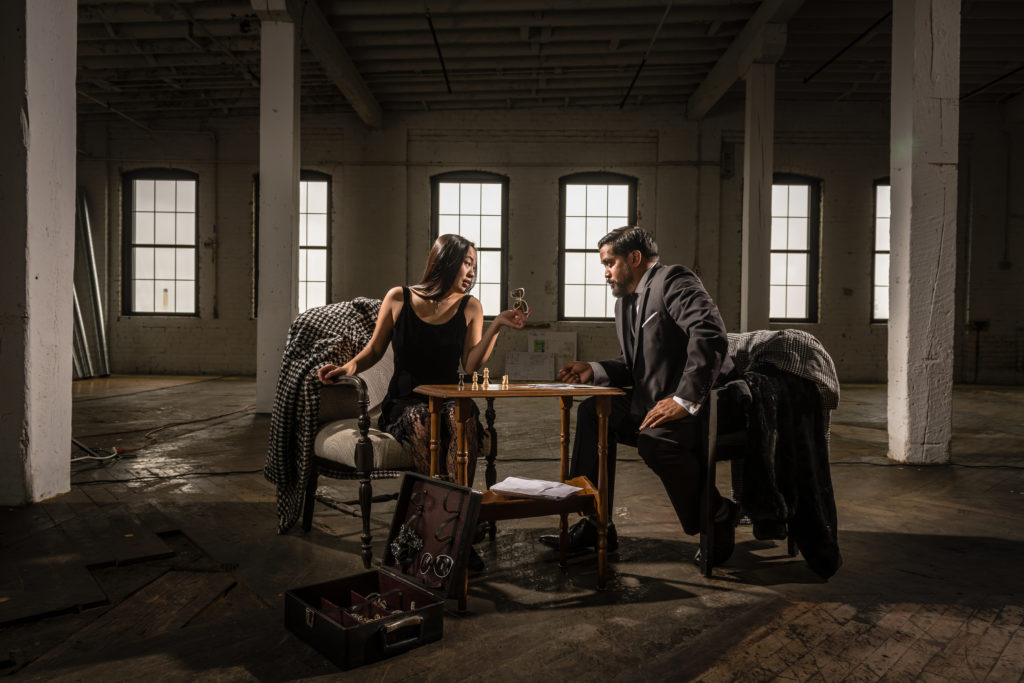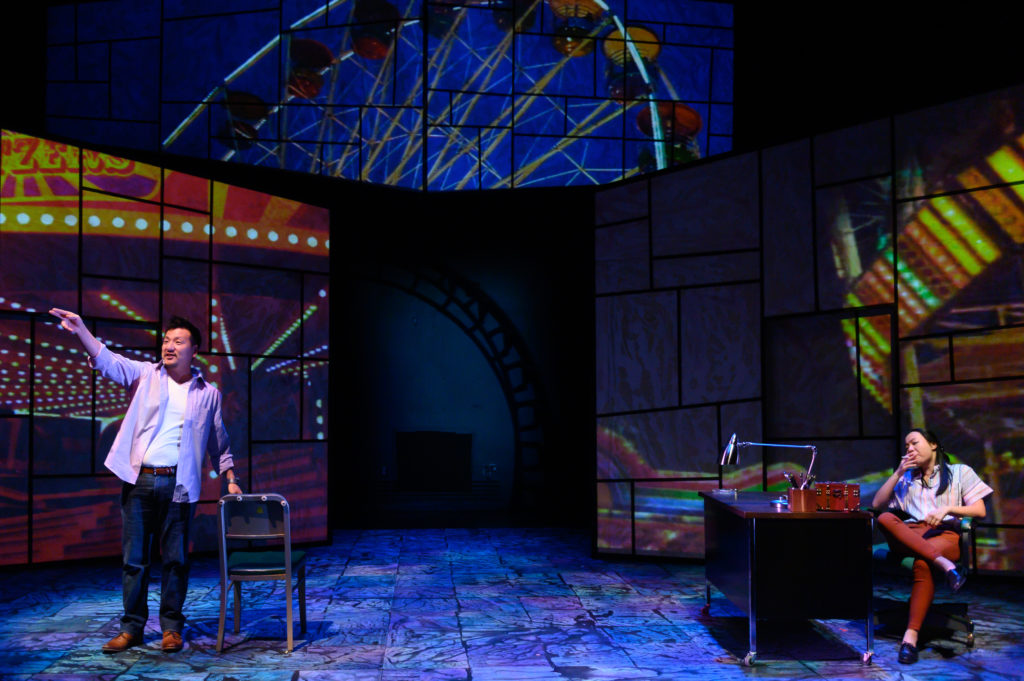The lobby of the Guthrie is packed. “A Christmas Carol” and “Steel Magnolias” are playing tonight. Coats and scarves have emerged already from the depths of our closets, people shiver and stamp their feet as they come through the door.
It’s a busy night. The Guthrie’s small retail store is bustling, the restaurant, Sea Change, is packed as well, abuzz theater-goers holding last-minute bites and cocktails.
No disrespect to the other shows playing – they are both classics that need no introduction – but we pass them by, heading for the top-of-the-top, to the 9th floor, where the best views the Guthrie Theater has to offer of downtown and the river lie, to the Dowling Studio for Theater Mu’s latest “Fast Company.”
It has been described as a “great con” and “silly fun” by the City Pages, and akin to films like Ocean’s 11 in the Pioneer Press’s somewhat disingenuous review – but what we discovered was much more than classic con tricks a la The Sting or Matchstick Men: A story of how our relationships, and our unwavering loyalties to them shape our lives – for better and for worse.

With a heist-gone-wrong and a double-cross to set up conflict in the show, we set off almost immediately on a globe-trotting caper – from noir-lit offices that would suit Jake Gittes just fine, to Coney Island, to a rum bar in Brazil, to a college campus in Providence, and a sinister meat locker far beyond the street – thanks to brilliant set and projection design from Joel Sass and Miko Simmons respectively.
But what becomes apparent from the start is that it’s all about family; the importance thereof, and the strife within – something we’ve all experienced at one point or another when dealing closely with family (especially as the holidays brings everyone together, as much as we may love our kin, our grievances often air as well).
Brian Kim is a scene-stealer as Francis – the fastest of the Fast Company, he embodies the smooth-talking, answer-for-everything grifter we’ve come to know and love in con-man capers, while still remaining a product of the woman who raised him – he was also fantastic in The Korean Drama Addict’s Guide to Losing Your Virginity (if you didn’t catch that one, read about it here) where a powerful matriarch, a character similar to Jeannie Lander’s Mabel here, loomed always overhead.
Lander too, is magnificent to watch as the mother-of-three, adding a weighted presence to the stage that is felt the moment she is introduced. She is always in control – and the impact of her uncompromising worldview on her children is the real driving force behind the story.
But everyone is on-point: Ming Montgomery’s Blue, the youngest child with something to prove, and gambling-addict H, played by Eric ‘Pogi’ Sumangil, whose missteps provide the catalyst for the story, more than hold their own as well.

The play benefits when we get them all at the same time, trading barbs and planning the next move, with a bit of simplified game theory sprinkled in to tie the cons together and illustrate the differences in each character’s mentalities.
Family commonly plays an important role in Theater Mu productions – whether through the abuse of The Last Firefly or the influence of a mother’s death in the most recent Hot Asian Doctor Husband, family is an ever-present, and driving force in Mu’s ever-expanding repertoire.
The difference here, to the play’s benefit, is how well their warmth and caring comes through – it adds a bit of humanism to David Mamet-esque dialogue; it adds a gravitas to the dynamic between characters that keeps our interest where similar plays sometimes fail – again, the show’s strongest parts come from having all four members of the family in the room, and their distinct personalities, and distinct roles as members of the family, make the play’s conclusion all the more satisfying.
Thus, by the time we reach the end, wrought by twists-and-turns just farfetched enough to work – we’re fully invested; concerned for the well-being of each character, sympathizing with their demons and their dreams, rooting for their success.
This is not the type of play that will reinvent a well-established wheel. Through Theater Mu’s always-reliable storytelling – establishing culture and representation to shape the stories that shape the Twin Cities – we’re reminded here simply of the power a good story, and good characters, can have, and that we don’t always need George Clooney, or Paul Newman, or Jack Nicholson, or Leonardo DiCaprio to do it. This is just the kind of escape we look for on a cold Wednesday night.
As snowflakes drift along the river, the lights of the city blink – still on in the darkness of shorter days in winter – we leave before the rest of the crowds. Perhaps we’ll return for one of the Guthrie’s other shows soon.
Read this next: The Twin Cities’ Best Move Theater Experiences
















